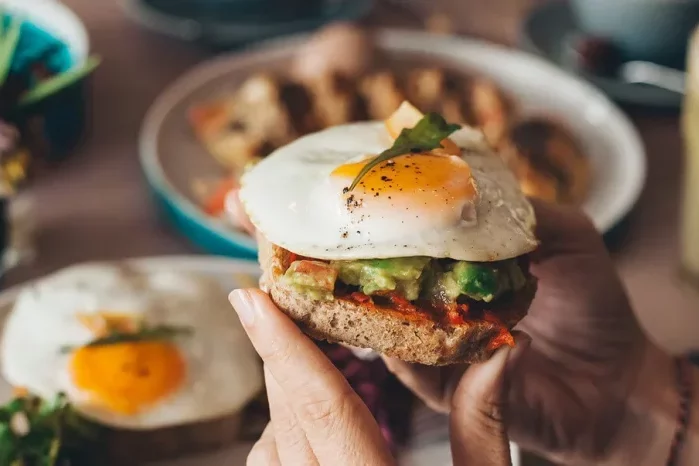A high protein, low calorie diet is a popular choice among fitness enthusiasts and those looking to lose weight. This diet emphasizes the consumption of protein-rich foods while reducing overall calorie intake. In this comprehensive article, we will explore the benefits, mechanisms, and practical aspects of a high protein, low calorie diet.
Introduction
A high protein, low calorie diet involves consuming foods that are high in protein but low in calories. Protein is an essential nutrient that plays a crucial role in muscle building, repair, and overall body function. By focusing on protein-rich foods and reducing calorie intake, individuals can achieve a variety of health and fitness goals.
The Science Behind High Protein, Low Calorie Diets
How Protein Affects the Body
Protein is made up of amino acids, which are the building blocks of muscles, tissues, and organs. When you consume protein, your body breaks it down into these amino acids and uses them for various functions, including muscle repair and growth, hormone production, and immune function.
Calorie Deficit and Weight Loss
To lose weight, you need to create a calorie deficit, which means consuming fewer calories than your body needs to maintain its current weight. By reducing calorie intake and increasing protein consumption, you can achieve this deficit while preserving muscle mass.
Benefits of a High Protein, Low Calorie Diet
Promotes Weight Loss
One of the primary benefits of a high protein, low calorie diet is weight loss. Protein has a high thermic effect, meaning it requires more energy to digest compared to fats and carbohydrates. This can boost your metabolism and help you burn more calories throughout the day.
Preserves Lean Muscle Mass
When you reduce calorie intake, there’s a risk of losing muscle mass along with fat. However, a high protein diet helps preserve lean muscle mass during weight loss. This is essential for maintaining strength, functionality, and metabolic rate.
Enhances Satiety and Reduces Hunger
Protein is known to be more satiating than carbohydrates and fats. It helps you feel fuller for longer, reducing overall food intake and aiding in weight management. This can be particularly beneficial for those trying to control their appetite and reduce snacking.
Supports Muscle Repair and Growth
For those engaged in regular exercise or strength training, protein is crucial for muscle repair and growth. A high protein diet ensures that your body has the necessary nutrients to recover and build muscle after workouts.
How to Implement a High Protein, Low Calorie Diet
Choose Lean Protein Sources
Opt for lean protein sources such as chicken breast, turkey, fish, tofu, legumes, and low-fat dairy products. These options provide high protein content with fewer calories and less fat.
Incorporate Protein at Every Meal
Ensure that each meal includes a source of protein. This helps maintain a steady supply of amino acids for muscle repair and keeps you feeling full throughout the day.
Monitor Calorie Intake
Track your calorie intake to ensure you are in a calorie deficit. Use apps or food journals to record your meals and snacks. Be mindful of portion sizes and avoid high-calorie, low-nutrient foods.
Combine with Exercise
Pair your high protein, low calorie diet with regular exercise. Strength training is particularly beneficial for preserving muscle mass and boosting metabolism. Cardio exercises can help create a larger calorie deficit.
Potential Challenges and Solutions
Difficulty Meeting Protein Needs
Some individuals may find it challenging to consume enough protein, especially if they are not used to a high protein diet. Consider using protein supplements like whey protein or plant-based protein powders to meet your needs.
Risk of Nutrient Deficiency
Focusing too much on protein can sometimes lead to neglecting other essential nutrients. Ensure you have a balanced diet that includes a variety of vegetables, fruits, whole grains, and healthy fats.
Sustainability
A high protein, low calorie diet may be difficult to sustain long-term. To maintain your results, transition to a balanced diet that includes adequate protein while allowing for a wider variety of foods.
See Also: Keto vs. Low-Calorie Diet: Which is Better?
Sample High Protein, Low Calorie Meal Plan
Breakfast
Greek yogurt with berries and a sprinkle of nuts
Scrambled eggs with spinach and tomatoes
Protein smoothie with whey protein, almond milk, and a banana
Lunch
Grilled chicken salad with mixed greens, cucumbers, and a light vinaigrette
Quinoa bowl with black beans, corn, and avocado
Tuna salad with celery, onions, and a squeeze of lemon
Dinner
Baked salmon with steamed broccoli and sweet potato
Stir-fried tofu with mixed vegetables and brown rice
Lean beef stir-fry with bell peppers and asparagus
Snacks
Cottage cheese with pineapple
Hard-boiled eggs
Hummus with carrot sticks
Tips for Success
Plan Your Meals
Planning your meals in advance can help you stay on track with your high protein, low calorie diet. Prepare meals and snacks ahead of time to avoid reaching for unhealthy options.
Stay Hydrated
Drink plenty of water throughout the day. Staying hydrated is essential for overall health and can help control hunger.
Listen to Your Body
Pay attention to your body’s hunger and fullness cues. Eat when you are hungry and stop when you are satisfied. Avoid eating out of boredom or stress.
Conclusion
A high protein, low calorie diet can be an effective strategy for weight loss, muscle preservation, and overall health. By focusing on protein-rich foods and maintaining a calorie deficit, you can achieve your fitness goals while supporting muscle repair and growth. Remember to choose lean protein sources, monitor your calorie intake, and combine your diet with regular exercise for the best results. With careful planning and commitment, a high protein, low calorie diet can help you reach and maintain a healthy weight.


